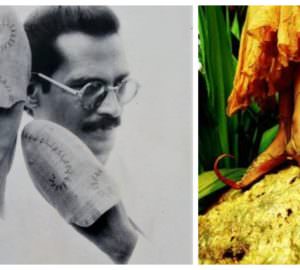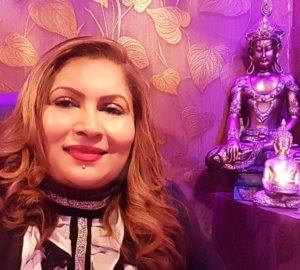1.70 million Facebook readers and growing with the target of hitting 40 million by 2018, The Better India by far has been leading India’s largest media-tech platform for curated positive impact-focused news. In the process, they have been credited by the industry for making `good news’ mainstream, and making news themselves along the way.
Growing in strength rapidly since inception in 2008 with global visibility as the next forward frontier, the media brand’s recent association with former U.S. Vice President Al Gore’s An Inconvenient Sequel: Truth to Power (2017) stems from their sustained philosophy that “Climate change is a conversation every human on this planet must participate in.” Dhimant Parekh, Founder-CEO, The Better India in an interview hits it straight.
 As an impact creating media house, which have been your most impactful change initiatives so far?First off, it’s great to be identified as an impact media house! I believe, we are the first of its kind in the country. It’s true that impact has been the key focus of all our work. Of the various social impact interventions that we’ve managed to accomplish, there are a two that have particularly stayed with me, because of the causes they have championed:
As an impact creating media house, which have been your most impactful change initiatives so far?First off, it’s great to be identified as an impact media house! I believe, we are the first of its kind in the country. It’s true that impact has been the key focus of all our work. Of the various social impact interventions that we’ve managed to accomplish, there are a two that have particularly stayed with me, because of the causes they have championed:
Signal Shala: It’s a school that operates out of a shipping container under Teen Haat Signal flyover in Thane. On the occasion of Teacher’s’ Day 2016, we raised 6.5L to help educate 20 children, who would otherwise have been begging or selling knick-knacks on the streets . Education, is the key to empowerment, and in a society that is plagued with taboo and superstition, being able to provide an opportunity to mould young minds into better citizens is what we believe will make The Better India!
The other project that we all are very proud to be associated with has to do with environment and sustainability. As a country, we produce close to 6 million tonnes of plastic waste every year – this includes close to 120 billion pieces of discarded plastic cutlery. As a part of our India Innovates series we featured a Hyderabad based bakery’s innovation of edible cutlery. Not only did the video go viral having been watched the world over by more than 100 million people, we also helped save a very conscientious enterprise. It generated crores of rupees in pre-orders, and received recognition in global media such as Forbes, Telegraph, Wall Street Journal and even The Guardian! It is the stories of change makers and real life heroes like these, that will catalyze us into a more sustainable society.



You have been evangelising the `common man/woman.’ What inspired you to create this `differentiating’ voice in your story-telling format?
As a media house, we have built ourselves on the principle that news can be used to administer and inspire change. We started out small, as a blog that curated and distributed stories about laudable citizen driven initiatives around us. Our motivation was to simply highlight the good things that were happening in the country, however small, at a time when all we saw or read in mainstream media was negativity. At that point the concept of positive journalism did not exist. Our agenda was to break this stream of negativity and showcase uplifting stories about regular citizens like you and me, who were doing their bit to make a our country a better place to live in.
What are the core problems which ail India as a country, as a society, as a collective population today?
As a Nation we are steeped in socio-political turmoil. That, however, is true for almost all nations. As a collective population as well as in individual capacity, we need to be more aware. Instead of focusing on problems, it is solutions that we need to focus on. If as individuals, we do our bit, pick up after ourselves, instead of only complaining about what is not happening, it will go a long way in building a better nation.

How do you propose to influence Change towards rewriting the country’s current intolerant , intrusive, social, political, cultural state of mind and heart?
Ours is a bottom-up approach. We highlight the stories of everyday change makers, real-life heroes. It is the stories of regular people who in their personal capacity have initiated and mobilized change that inspire so many others to follow suit. India, like every other country has its socio-political problems, many of which the government is trying to address. However, as citizens, each of us have some imperative roles and responsibilities. It is these that we focus on through our portal. We believe in building an inclusive community, without getting entrenched in political debate.

You made news globally with Al Gore’s Climate Change campaign film, `An Inconvenient Sequel.’ How did that happen?
Climate change is a conversation that we have espoused right from the word go. Therefore when it came to a choosing of partner for An Inconvenient Sequel: Truth to Power (2017), we were the de-facto choice. The movie documents former U.S. Vice President Al Gore’s quest to find out how human ingenuity and passion can tackle climate change, so given that we have a highly engaged and involved audience – one that unequivocally supports and forwards the cause – it was only natural that Al Gore’s team reached out to us. We partnered with the movie and did a four part series of articles featuring Climate Change heroes who have life’s work to make a difference. The series, needless to say, was very well received.
How do you propose to contribute as a media house to highlight India’s reality with climate change challenges, seen disturbingly across the country in recent times.
Climate change is a very important issue today. As a platform, our agenda is to focus on the solutions. Everyone talks about the problems, but what is it that we can do to minimize, if not reverse its effects? That’s where we come in! We’ve written about several innovations in the space of renewable energy, conservation practices, organic practices etc., that you and me can take up at an individual level. From stories about bamboo windmills developed by two brothers in Assam, to efficient irrigation practices, to a man who built a solar powered home, we strive to bring these endeavours to the mainstream media so that it can create large-scale impact. In fact, one of our articles was cited in policy discussions as a perfect example of how our hill stations can be preserved and many of the best practices were then incorporated into a conservation policy.

What do we need to do as collective to reverse our abuse of Nature?
While I am no authority on that, I think simply being aware and conscious individuals will go a long way! If not reverse it, the least we can do, is to make sure that we do not add to it!
What is your own personal contribution towards reducing carbon footprint?
Both an an individual and as an organization we take several measures. I carpool to work or meetings whenever possible, we encourage everyone at The Better India to do the same. We categorically avoid packaged food, so as to not further add to the waste creation process. The crown jewel currently is though the new office space that we are setting up in Bangalore. The idea is to make it a green space, where everything used is either from recycled waste or up cycled material. We want to make sure that we, as The Better India, are walking the talk!

What projects are in the pipeline to highlight and contribute a purposeful sensitivity in action and deed towards combating Climate change in India.
Sustainability and environment, are a few concerns that we address with every project we take up. Earlier this year, we restored two drinking water ponds in Nagapattinam – one of the worst drought affected districts in Tamil Nadu. It now gives about 20,000 underprivileged people access to clean drinking water. In our current project, where we are fundraising to set up a sanitary pad manufacturing factory in Rajasthan, one of the preliminary things we addressed was making sure that the raw materials used were 100% compostable. All our efforts are aggregated to ensure impact without adding to the damage of the environment.

On your Vision board, what 3 qualities are you looking forward to build and represent globally.
The quality we value most highly is that of transparency and credibility. There is no alternative to honesty. Sustainability, be that in the form of conservation practices, clothing, energy, or environment. Positivity/Good News: It is we who have made the idea of good news or positive journalism mainstream. Several publications now have a Good News section!
Website: www.thebetterindia.com
Facebook: https://www.facebook.com/thebetterindia/
https://www.facebook.com/thebetterindia.hindi/
#TheBetterIndia #Media #Tech #Impact #ClimateChange #AlGore #Environment #DhimantParekh #EthelDaCosta #ThinkGeekMedia



